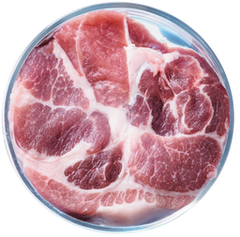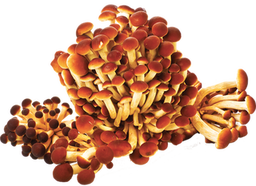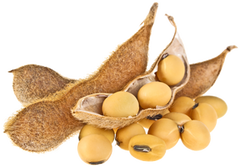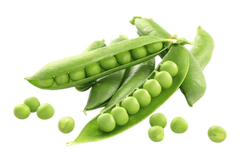Panel discussion on...
Alternative proteins
Regulating and standardising alternative proteins: hurdles & opportunities
The global food system is one of the main causes of the climate crisis as it is responsible for one-third of greenhouse gas (GHG) emissions. The world’s growing appetite for animal protein is also detrimental to planetary health as the livestock industry accounts for 14.5% of all anthropogenic GHG emissions. In the past decade, we have witnessed the exponential growth of alternative proteins which are positioned as more resource efficient and nutritionally comparable to animal protein.
Increasing public investments in alternative proteins show more and more governments recognise these products as crucial tools to reduce environmental footprint and to future proof protein supply. Circular Bio-based Europe Joint Undertaking (CBE JU) is a €2 billion partnership between the European Union and the Bio-based Industries Consortium. One of the projects they fund is PLENITUDE – a minimal waste, circular project co-ordinated by ENOUGH that leverages the power of fungi to manufacture sustainable proteins. Singapore’s sovereign wealth fund Temasek has invested in several alternative protein companies while a recent White House report urges boosts to R&D of alternative protein sector to improve the country’s sustainability goals and economic innovation.
However, the environmental and health credentials of alternative proteins are questioned, and the industry has been criticised as a hyped-up fad. The current regulatory landscape and lack of standardisation have compounded the scepticism. It has caused much confusion among the public and consumer adoption as well as developmental path of food innovation are impeded.
Regulatory frameworks – striking a balance between consumer protection and alternative protein growth
A closer look at the regulatory front in the EU sheds light on why it is not conducive to the growth of alternative proteins as it influences market entry to 27 Member States – alternative proteins must get pre-market authorisation under the Novel Foods Regulation if they were not consumed to a significant degree before May 15 1997. The process is time-consuming, complicated and expensive. The process can take as long as two years and is more demanding regarding the dossiers submitted by food business operators, compared to other countries. It inflicts hefty costs and huge uncertainty on foodtech startups, stalling their commercialisation and discouraging innovation.
To facilitate the growth of the industry, one crucial step is to strike the right balance between protecting consumer interests and speeding up alternative protein brands’ market entry. The Novel Foods Regulation was enacted at a time before the rise of alternative proteins and may not be able to respond to the rapid changes of this burgeoning sector. Currently, alternative proteins do not fall under the category they emulate, such as meat and dairy products and fall under ‘Others’.
A specific category can therefore be created for alternative proteins so that regulators trained with the knowledge of this emerging industry can work more closely with the food brands in the application process. Regulatory bodies can also use a more proactive and collaborative approach. The Singapore Food Agency strongly encourages foodtech startups to consult them at the early R&D and commercial planning stages. The Tony Blair Institute for Global Change proposes a provisional novel food authorisation which would allow alternative protein companies to sell with limitations, including a minimum selling price, a cap on the number of products sold and types of sales channels, before getting the full authorisation.
Besides, clearer and specific guidelines can be developed with industry stakeholders to ensure they are practical and efficient. Many alternative protein companies have teamed up to represent the sector, such as European Plant-based Foods Association, Alternative Proteins Association and Plant-based Food Alliance UK. The Fungi Protein Association was founded in November 2022 and ENOUGH is a founding member. These alliances are proactive in engaging policymakers on regulatory and policy issues to advocate for a level playing field with animal protein.
Food labelling and marketing – sending consistent and substantiated messaging to consumers
Alternative protein terms, such as plant-based and animal-free, are not clearly defined and few countries have guidelines to name ‘vegetarian’ and ‘vegan’ products. In 2020, the EU launched the Farm to Fork Strategy as a major pillar of the European Green Deal to make the food system more sustainable, healthy and equitable. Some actions outlined in the proposed legislative framework to support sustainable food policy are steps in the right direction to standardise food information made available to consumers. That includes harmonised mandatory front-of-pack nutrition labelling to enable consumers to make health-conscious food choices, and nutrient profiles to restrict promotion of food high in salt, sugar and/or fat.
The European Commission has also proposed a directive on regulating green claims which includes detailed rules on the substantiation, communication and verification of voluntary environmental claims used by businesses. All these actions will lay the foundation for higher standards and more transparency of food products. That will then help dispel consumer doubt and concern about alternative proteins.
However, countries are divided in their stance towards alternative proteins and that causes much confusion for consumers. For example, Italy has approved a bill banning the production and sale of cultured meat to protect its food heritage. On the other hand, the US and Singapore have approved its sale and such conflicting policies send ambivalent signals about the safety of these food innovations.
It goes the same for the naming of meat and dairy alternatives as they cannot be named as the category they emulate on the grounds that they mislead consumers while a few consumer studies have already shown otherwise. The FDA is consulting on voluntary nutrient statements by plant-based milk to show how it compares with dairy. As non-dairy milk generally does not contain same levels of key nutrients in milk, the proposed measure will give the impression that plant-based milk is an inferior product while disregarding the dairy sector’s high environmental footprint. Such discriminatory product naming and nutritional comparison put alternative proteins at an unfair disadvantage and are not consistent with the urgent need to shift towards sustainable proteins.
Urgent need for fairer food policies
On the global level, food policies supporting protein diversification must be implemented and countries should devise a clear roadmap to culminate in a more sustainable food system. That will put alternative protein on an equal, if not prioritised, footing with animal protein.
Panelists
References and notes
- COMMISSION IMPLEMENTING REGULATION (EU) 2021/882; (EU) 2022/169; (EU) 2022/188; (EU) 2023/5; (EU) 2023/58; and (EU) 2021/1975
- https://doi.org/10.1016/j.foodchem.2019.126022
- https://doi.org/10.1016/j.cofs.2021.08.003
- https://doi.org/10.1016/j.tifs.2022.02.021
- doi: 10.3390/ijerph17072427
- https://doi.org/10.1016/j.appet.2021.105832
- https://library.wur.nl/WebQuery/wurpubs/fulltext/258042



















